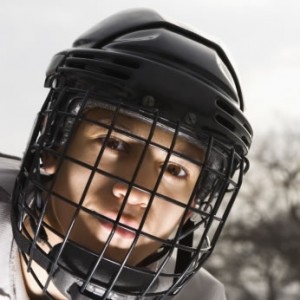 I was a hockey mom. My son played for many years, trained hard – and for my penance took me along for the rocky ride. Working (as I do) in the profession where we treat on a regular basis clients who have sustained traumatic brain injury, I had cause on many occasions to despair at the irresponsible and flawed thinking behind the decisions of parents ( and coaches) who allowed children to return (in haste) to play the game after sustaining injury. The percieved pressure being, that chances would be lost if too much time was taken in recovery. It was with some insight  then, that I read the New York Times piece Sports Imperative: Protecting Young Brains.
I was a hockey mom. My son played for many years, trained hard – and for my penance took me along for the rocky ride. Working (as I do) in the profession where we treat on a regular basis clients who have sustained traumatic brain injury, I had cause on many occasions to despair at the irresponsible and flawed thinking behind the decisions of parents ( and coaches) who allowed children to return (in haste) to play the game after sustaining injury. The percieved pressure being, that chances would be lost if too much time was taken in recovery. It was with some insight  then, that I read the New York Times piece Sports Imperative: Protecting Young Brains.
You’ve probably heard it before, but the moment is right to hear it again: If young athletes want to preserve their brains after a head injury, however minor, the typical jock advice to suck it up and get back in the game is not only bad, it’s potentially life-threatening.
Now, before the playing season starts, is the time for baseline testing of athletes involved in sports where head hits are common. With pre-injury results in hand, coaches and doctors are far better able to determine whether a concussion has occurred and if and when the brain has recovered. link to continue reading
Source: New York Times
